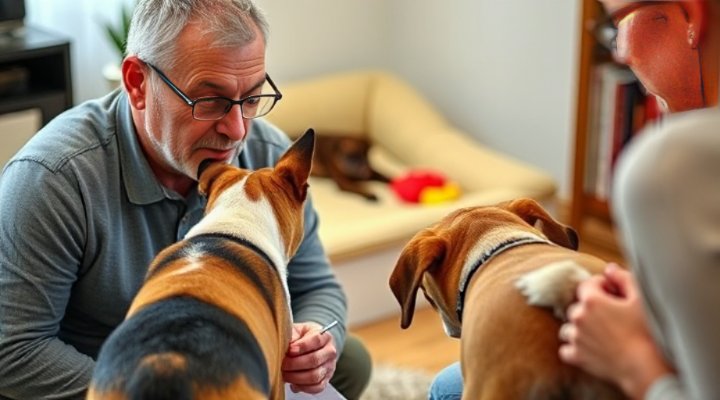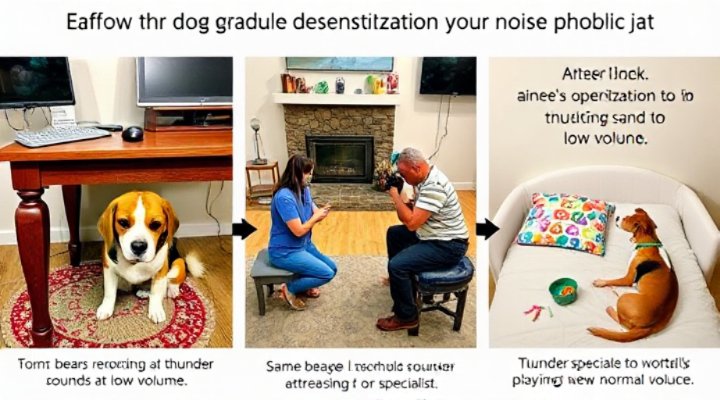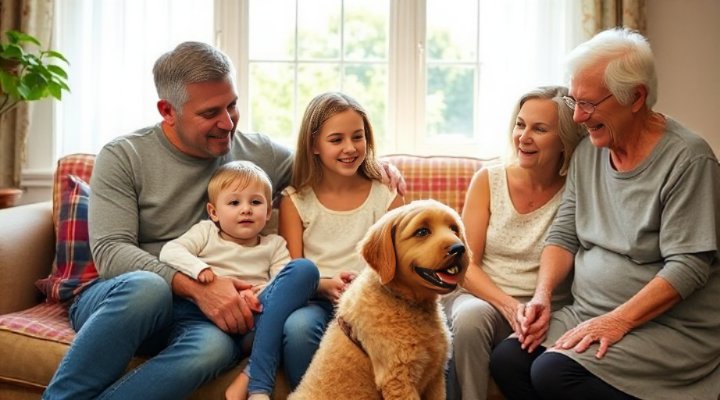When your beloved canine companion develops problematic behaviors, it can be frustrating and concerning for any pet owner. That’s where a dog behavior specialist comes in – these certified professionals use science-based methods to diagnose and modify challenging behaviors, helping restore harmony to your household.

What Exactly Does a Dog Behavior Specialist Do?
Unlike basic obedience trainers, a certified dog behavior specialist has advanced training in canine psychology and behavior modification. They begin by conducting a thorough assessment of your dog’s history, environment, and specific behavioral issues. Using this information, they develop a customized treatment plan that addresses the root causes rather than just suppressing symptoms.
For example, when working with a dog that shows aggression toward other dogs, a specialist might use controlled desensitization techniques paired with positive reinforcement. This approach, which you can learn more about in our aggressive dog training guide, helps change the dog’s emotional response to triggers rather than simply teaching obedience commands.

Common Behavioral Issues Addressed by Specialists
- Separation anxiety: Excessive distress when left alone, often leading to destructive behaviors
- Leash reactivity: Lunging, barking, or aggressive displays during walks
- Resource guarding: Aggressive protection of food, toys, or resting spots
- Excessive barking: Constant vocalization without apparent cause
- Fear-based behaviors: Reactions to specific triggers like noises or strangers
As a dog behavior specialist would explain, these issues often stem from underlying anxiety, past trauma, or inadequate socialization during critical developmental periods. The good news? With proper intervention, most dogs show significant improvement.

The Science Behind Behavior Modification
Professional behavior modification relies on established principles of animal learning theory. Specialists primarily use positive reinforcement – rewarding desired behaviors to increase their frequency. This differs from outdated punishment-based methods that can worsen anxiety and aggression.
Consider counterconditioning, a technique where a dog learns to associate previously scary stimuli with positive outcomes. A reactive dog specialist might help a leash-aggressive dog form new associations by delivering high-value treats whenever another dog appears at a safe distance.
Three Key Components of Effective Behavior Plans
- Management: Preventing rehearsal of unwanted behaviors through environmental adjustments
- Modification: Systematic techniques to change emotional responses and behaviors
- Generalization: Ensuring new behaviors occur consistently across different contexts

When to Consult a Dog Behavior Specialist
While many minor behavior issues can be addressed through at-home training, certain situations warrant professional intervention:
- Aggression toward people or other animals
- Self-injurious behaviors like excessive licking or tail chasing
- Severe anxiety that interferes with daily functioning
- Behaviors that pose safety risks to the dog or others
Remember, early intervention typically leads to better outcomes. As one dog behavior specialist shared with me during a consultation, “It’s much easier to prevent a behavior pattern from becoming ingrained than to undo years of reinforcement.”

Finding the Right Specialist for Your Dog
When selecting a professional dog trainer for behavior issues, look for these qualifications:
- Certification from reputable organizations (e.g., CCPDT, IAABC)
- Continuing education in animal behavior science
- Experience with your dog’s specific issues
- Commitment to force-free, positive reinforcement methods
The investment in professional help pays dividends in your dog’s quality of life and your peace of mind. As the happy family in our final image demonstrates, with patience and the right guidance, even serious behavior problems can be successfully resolved.
Related Keywords: canine behavior consultant, professional dog trainer, animal behaviorist, dog psychology expert, certified behavior consultant, positive reinforcement trainer, separation anxiety specialist, reactive dog trainer

